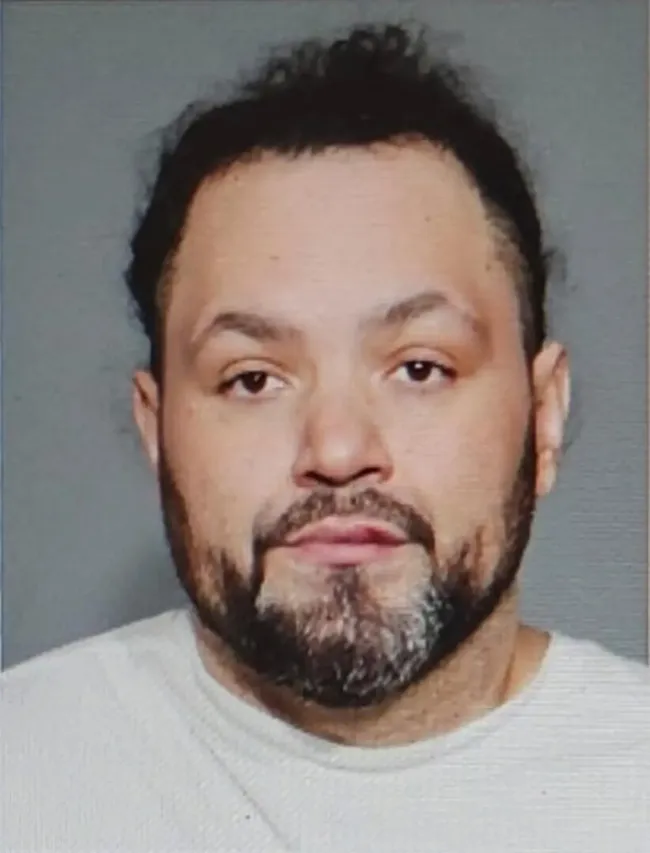Jason Ayala: Manhattan Repeat Offender’s Crime Spree Ignites Debate Over Bail Reform and Prosecutorial Policies
The Crime That Set the City on Edge
Jason Ayala, 37, a career criminal with a rap sheet spanning two decades, was arrested on January 12, 2025, after a brutal robbery in Manhattan’s East Village. In the early hours at an Avenue D bodega, Ayala allegedly attacked a 61-year-old man and a 51-year-old acquaintance, stealing a cellphone in the process. Despite being charged with two counts of second-degree robbery—a bail-eligible offense—what happened next sent shockwaves through the city.
A Bail Decision That Defies Logic
- Prosecutor’s Plea Ignored: Manhattan DA Alvin Bragg requested a $5,000 cash bail or $15,000 bond, emphasizing the violent nature of Ayala’s charges.
- Judicial Blind Spot: Judge Robert Rosenthal, appointed by former Mayor Bill de Blasio, dismissed the plea, opting for supervised release instead. This, despite Ayala’s six prior arrests for assault, drug crimes, and robbery dating back to 2004.
Policy Over Public Safety
DA Bragg’s office has been accused of coddling criminals under the guise of “progressive” reforms. Policies that downgrade serious felonies, like first-degree robbery, to petty larceny when “no real threat of harm” is perceived have made Manhattan a sanctuary for repeat offenders.
A Crime Spree Hours After Release
Within 24 hours of walking free, Ayala went on a rampage, targeting five females, including two children, in a series of sexual assaults across NYCHA housing complexes:
- 3:00 p.m., Lillian Wald Houses: Ayala groped a 14-year-old girl returning from school. Her outraged mother declared, “He shouldn’t have been out on our streets the next day doing that.”
- 3:15 p.m., Baruch Houses: He attacked a 35-year-old woman in an elevator.
- 3:20 p.m., Lillian Wald Houses: A 49-year-old woman confronted him after being slapped, shouting, “Who do you think you are to touch me like that?”
- 3:25 p.m.: Ayala groped a 12-year-old girl and her 32-year-old mother in another elevator.
Public Fury and Official Condemnation
- NYPD Commissioner Jessica Tisch: “He shouldn’t have been out on our streets the next day doing that.”
- Community Outrage: Lillian Wald resident Juana Catalan didn’t mince words: “How do they let a criminal walk free to hurt more people?”
A System Designed to Fail?
Judge Rosenthal, who previously drew ire for releasing Quran Campbell—a man accused of attacking NYPD officers during a 2019 protest—has again sparked fury. Critics argue his decisions reflect a broader failure of Manhattan’s justice system.
DA Bragg’s reforms have emboldened criminals:
- Weapon-Related Felonies Downgraded: Armed robberies often reduced to misdemeanors if weapons aren’t fired.
- Pretrial Release Prioritized: Non-incarceration policies for serious crimes like burglary and robbery are standard unless “extreme circumstances” apply.
Former ADA Daniel Ollen slammed these policies as “an affront to law-abiding citizens,” saying they give offenders a free pass.
Political Fallout Looms Large
With Manhattan crime surging, disillusioned Democrats may abandon Bragg in his 2025 re-election bid. Across the nation, cities like Chicago and Philadelphia are also grappling with the fallout of similar policies, with critics directly linking them to rising violent crime.
Justice Denied Again
After his rearrest, Bragg sought a $200,000 cash bail. Judge Rosenthal slashed it to $50,000, allowing Ayala to await his February 5 court date from the confines of Rikers Island—a rare but overdue consequence.
The Verdict on Reform
Jason Ayala’s case has laid bare the catastrophic consequences of Manhattan’s criminal justice experiment. As public trust crumbles and outrage mounts, the city faces a reckoning: Will it prioritize the safety of its citizens, or continue to gamble with their lives in the name of reform?
